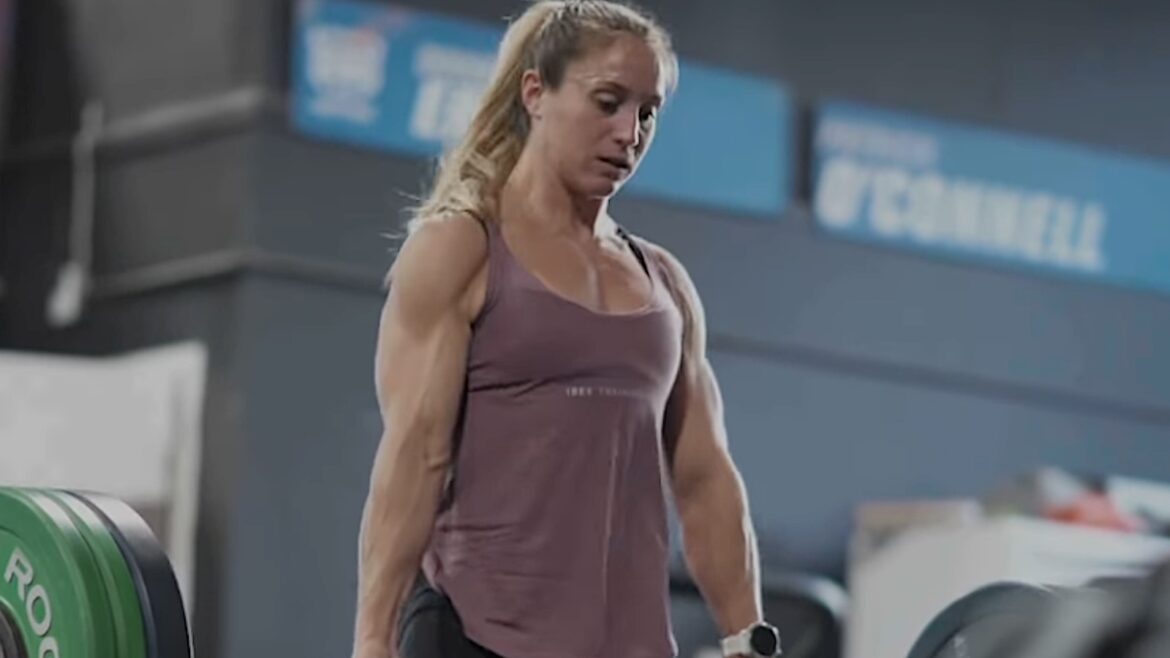Not eating enough calories impacts overall health, workout performance, and recovery.
Athletes who undereat, particularly those focused on building strength and muscle, face significant risks.
On Sept. 8, 2024, the ultra-marathoner and seven-time CrossFit Games athlete discussed the perils of undereating and its impact on muscle and strength gains.
[Related: 9 Types of Diets — How They Work and Pros & Cons]
What Happens When One Undereats?
O’Connell emphasizes that eating less deprives the body of essential nutrients necessary for optimal functioning, including building and repairing muscle tissues. Undereating can result in energy deficiency, where the body lacks sufficient calories to support muscle growth.
Rather than building muscle, the body may begin to lose muscle mass, also known as muscle atrophy. This occurs because, without adequate diet fuel, the body breaks down muscle tissue to meet its energy needs.
The Role of Proteins in Muscle Growth
Protein is crucial for muscle growth and repair, particularly during workouts. The body struggles to repair damaged muscles without sufficient protein intake, ultimately hindering muscle growth. (1)
Small tears occur in the muscle fibers. Protein provides amino acids to repair these tears, building stronger muscles.
The Role of Carbohydrates & Fats in Muscle Growth
Many often neglect carbohydrates and fats due to the predominant focus on protein. O’Connell explains that carbohydrates are a primary energy source, particularly during high-intensity workouts.
If you don’t consume enough carbs, glycogen stores deplete, leading to fatigue and reduced workout performance…you won’t be able to lift as heavy or train as intensely.
Healthy fats and testosterone are crucial for hormone production and muscle growth. (2) Fats offer a slow-burning energy source essential for maintaining energy levels throughout daily activities and workouts. Research indicates that athletes who consume a balanced intake of carbohydrates and fats tend to perform better. (3)
O’Connell’s Thoughts on Building Muscle & Losing Fat
Focus on fat loss or muscle gain rather than both simultaneously. To effectively build muscle, it’s likely better to maintain a slight caloric surplus, which provides the energy necessary for muscle growth.


Conversely, if the goal is fat loss, gaining muscle mass can become challenging while in a caloric deficit.
Losing fat while gaining muscle is possible, but it’s most effective in beginners. Cycle between bulking — caloric surplus for muscle gain — and cutting — your caloric deficit.
Consequences of Relative Energy Deficiency (RED)
Relative energy deficiency (RED) occurs due to chronic under-eating and can lead to a wide range of associated issues, including:
“To prevent this, listen to the body and eat enough to meet the body’s needs,” O’Connell recommends.
Signs & Symptoms of RED
- Constant fatigue
- Lack of proper sleep
- No mass and strength gains
- Frequent illness
- Low blood sugar, causing mood swings
- Anemia
- Difficulty concentrating
- Muscle soreness
Adjusting Diet for Optimal Muscle Growth
Before adjusting a diet for muscle growth, understand total daily energy expenditure (TDEE) — the energy consumed in a day. Once aware, O’Connell recommends the following steps:
- Consume enough calories for daily activities and workouts
- Focus on nutrient-dense foods that provide the essential macronutrients
- Always be in a slight calorie surplus
- Pay attention to the meal timing
Building muscle relies on workouts and proper nutrition.
Under-eating can sabotage progress, no matter how hard you train. Muscles need nutrients to repair and grow. Prioritize diet as much as workouts to see the best results.
References
- Cava, E., Yeat, N. C., & Mittendorfer, B. (2017). Preserving Healthy Muscle during Weight Loss. Advances in nutrition (Bethesda, Md.), 8(3), 511–519. https://doi.org/10.3945/an.116.014506
- Griggs, R. C., Kingston, W., Jozefowicz, R. F., Herr, B. E., Forbes, G., & Halliday, D. (1989). Effect of testosterone on muscle mass and muscle protein synthesis. Journal of applied physiology (Bethesda, Md. : 1985), 66(1), 498–503. https://doi.org/10.1152/jappl.1989.66.1.498
- Kanter M. (2018). High-Quality Carbohydrates and Physical Performance: Expert Panel Report. Nutrition today, 53(1), 35–39. https://doi.org/10.1097/NT.0000000000000238
Featured image: @kristieramo on Instagram
